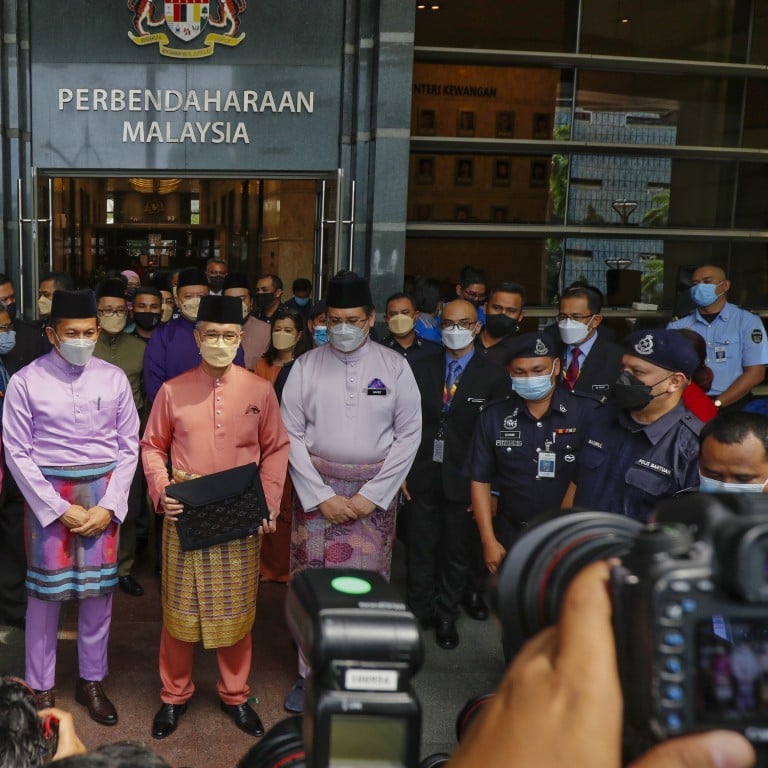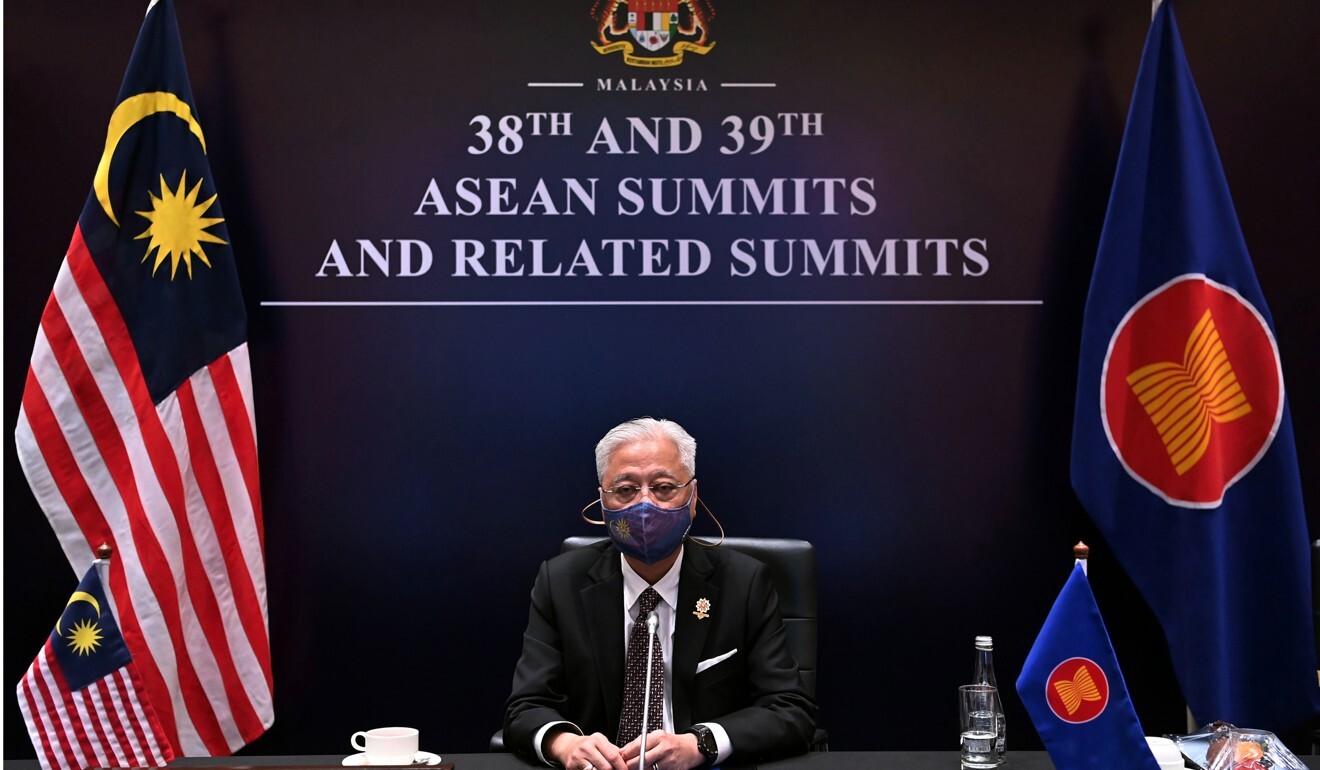
Malaysia unveils US$80 billion biggest ever budget in feel-good boost to post-Covid recovery
- Finance Minister Tengku Zafrul unveils first budget under PM Ismail Sabri Yaakob with wide-ranging plan including cash for low-income workers; subsidies for food, fuel and firms hiring women; and aid for small businesses
- Opposition criticism muted following peace pact, but some analysts warn benefits may be too widely spread to ‘jump-start’ the economy
Analysts said the large spread of beneficiaries across social groups under the spending plan showed the government was seeking to boost a rising nationwide “feel good” factor as the economy – roiled for months – picks up following a phased reopening.
The wide-ranging plan includes cash aid for those on low incomes, subsidies for basic food and fuel items, aid for small and medium enterprises, and wage subsidies for companies hiring more women, the disabled and members of the indigenous Orang Asli community.
With widespread dissatisfaction among the public and Malaysia’s influential royals over the pandemic-time politicking, Ismail Sabri signed an unprecedented peace pact with the opposition soon after taking power – with an aim of bringing about medium-term stability to see the country out of the crisis that has so far caused the deaths of 28,000 residents.

The benefit of the pact was apparent on Friday, with criticism of the budget largely muted among MPs from the opposition Pakatan Harapan pact.
Tony Pua, Pakatan Harapan’s economic committee chairman, said soon after Tengku Zafrul’s budget speech that the minister “must be commended for agreeing to adopt a series of critical measures” proposed by the opposition bloc.
Pua reserved special praise for the allocation of 40 billion ringgit for a “Semarak Niaga” programme that businesses can tap for direct loans, guarantees and equity injection.
The forecast 2022 budget includes a 21.9 per cent year-on-year bump in development expenditure to 75.6 billion ringgit and a 6.3 per cent increase in operational expenditure to 233.5 billion ringgit.
Malaysia’s political ceasefire: promising, but for how long?
Zafrul said the government forecast the pace of economic growth to rise to between 5.5-6.5 per cent next year from this year’s 3-4 per cent, due in part to the country moving towards the final phase of a four-step reopening plan and amid continued “strong fundamentals and diversity in the economy”.
Such performance, however, depended on factors such as the success of pandemic controls, the effectiveness of vaccinations, and the state of the global economy, Tengku Zafrul said.
The deficit is expected to reach six per cent in 2022, compared to 6.5 per cent in 2021.
To help with the continued stimulus, Tengku Zafrul said the government would impose a one-off “prosperity tax” for high-income companies.
Earnings of over 100 million ringgit will be subject to a 33 per cent tax rate instead of the current level of 24 per cent.

Yeah Kim Leng, an economics professor with Sunway University, said the expansionary spending plan was necessary as “normalising the budget too early could derail the recovery momentum that is gathering pace presently with the successful vaccine roll-out”.
“The stimulative budget will also reinforce the economic tailwinds and ‘feel good’ factor for an early general election that is expected to be called by the ruling coalition party next year,” Yeah said.
Oh Ei Sun, a senior fellow at Singapore’s Institute of International Affairs, said while it was laudable that a large number of groups would benefit from the budget, the downside was that the plan was “trying to please too many communities and too many sectors”.
Does Malaysian opposition need a new leader, or a new direction?
Prime Minister Ismail Sabri, a member of the country’s powerful United Malays National Organisation (Umno), governs with the backing of Muhyiddin’s smaller Bersatu party and the hardline Islamist Parti Islam se-Malaysia.

